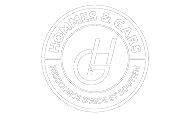For the Well-Being of People in the Fishing Industry
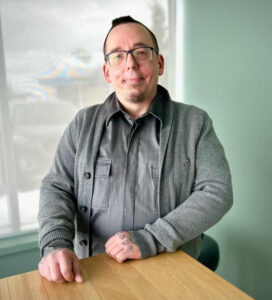 Patrick Jacques is empathetic, motivated, and a good listener. He’s probably the very first “dock worker” in Quebec. At a time when the fishing industry is undergoing serious upheaval, he is reaching out to people in the Côte-de-Gaspé MRC to offer them a helping hand. What does his work involve? How does he support fishers, the fishing industry, and those around them? And what’s his advice for reducing anxiety and helping us take care of ourselves? We caught up with him to find out.
Patrick Jacques is empathetic, motivated, and a good listener. He’s probably the very first “dock worker” in Quebec. At a time when the fishing industry is undergoing serious upheaval, he is reaching out to people in the Côte-de-Gaspé MRC to offer them a helping hand. What does his work involve? How does he support fishers, the fishing industry, and those around them? And what’s his advice for reducing anxiety and helping us take care of ourselves? We caught up with him to find out.
Patrick, who trained as a specialized instructor, has been a psychosocial outreach worker in the fishing industry for the Convergence organization since March 2024. His role? “It’s to be a pivotal person who acts as a link between people, resources, who facilitates access to services for people in the fishing industry, but also for anyone else in the community who needs help from 16 to 99 years old, men and women. I make referrals and provide support,” he explained.
Why Focus on the Fishing Industry?
Patrick’s position was recently created under a tripartite agreement between Convergence, the MRC de La Côte-de-Gaspé (as part of the Démarche intégrée en développement social de La Côte-de-Gaspé), and Santé publique du CISSS de la Gaspésie. The goal? To offer specific assistance to people affected by the difficulties experienced in the fishing industry. Because it meets a real need.
This is what Patrick has observed in his discussions with local people. “Honestly, fishers are under a lot of stress. Yes, there are the quotas: they can’t fish as much as in other years. But there’s also the lack of resources. They go fishing and there are fewer shrimps, fewer fish. It’s a reality that causes a lot of stress, because it’s their livelihood. Some feel responsible for their team, and who are there for their families too. It puts a lot on these people’s shoulders. There are also a number of fishers who are selling their licenses and boats and starting from scratch. It’s stressful for them too,” he explained.
How does he help people experiencing this anxiety? “By listening to them. Like anyone else, they can experience difficulties. I work with them to try and find solutions to what they’re going through, to reduce their stress. It could be a job search, for example, for people who no longer want to work in the fishing industry. Or it could be a health need: I’ll help them get access to a family doctor. By helping them reduce their stress, they’re able to concentrate more on their work. It lowers tension,” he added.
The Work of a Dock Worker
A psychosocial outreach worker position dedicated to the fishing industry didn’t really exist before now. So how was Patrick initially received in the community? What did people think of his arrival? “I was really well received, both by the people on the docks and by the group of captain-owners. When I arrived there everyone was very happy to see me. Things are going very well. Working with them has been wonderful. From the very first week, they called me the “dock worker.” That means people really identify me with the fishing industry. It’s really appealing,” he replied.
“Since I started, I’ve realized that it’s really obvious that people in the fishing industry need support and action. I intervene and guide them towards services. It motivates me as an outreach worker. I’m more than where I belong, I realize that,” Patrick continued, when asked how he feels about his new role as dock worker. Because, clearly, he’s making a difference to the people he’s helping.
What are his workdays like? “I spend a lot of time on the docks in the Rivière-au-Renard area. I’m not going to talk to the fishers all the time, because they’re working, but the important thing is that they see that I’m there and know that I’ll be there when they need me. I walk around the area. I’ll soon be getting a sticker to identify myself, so everyone will know that I’m the psychosocial outreach worker for the fishing industry, which will make my job easier,” he explained. He added that he is also working to create links with existing services and organizations to support fishers on a broad basis. “I’m talking about fishers, but there’s also the factory workers,” he pointed out.
Advice to Enhance Our Well-Being
If Patrick had just one piece of advice for reducing anxiety and promoting well-being, what would it be? “Communication,” he replied.
“Talk about your problems, your reality. Sometimes it may seem trivial, but talking about it can provide a different perspective and lead to solutions that the person might not have thought of. It can reduce stress,” he continued. He added, just because we don’t see solutions to our problems doesn’t mean they don’t exist. “It can be really beneficial to seek outside help and support, whether it’s from our loved ones, from me, or from other organizations or services,” he explained.
Because communicating and confiding in others, feels good.
Do you need help and would like to speak to an outreach worker? You can contact Convergence at 855 866-4455 or contact Patrick directly at 418-967-8990.

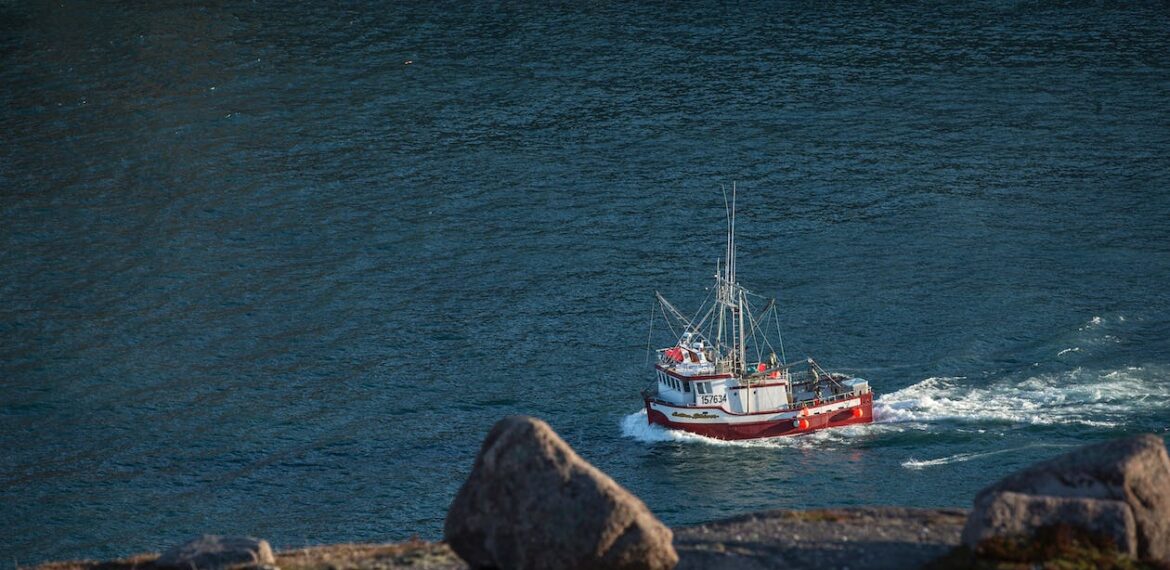
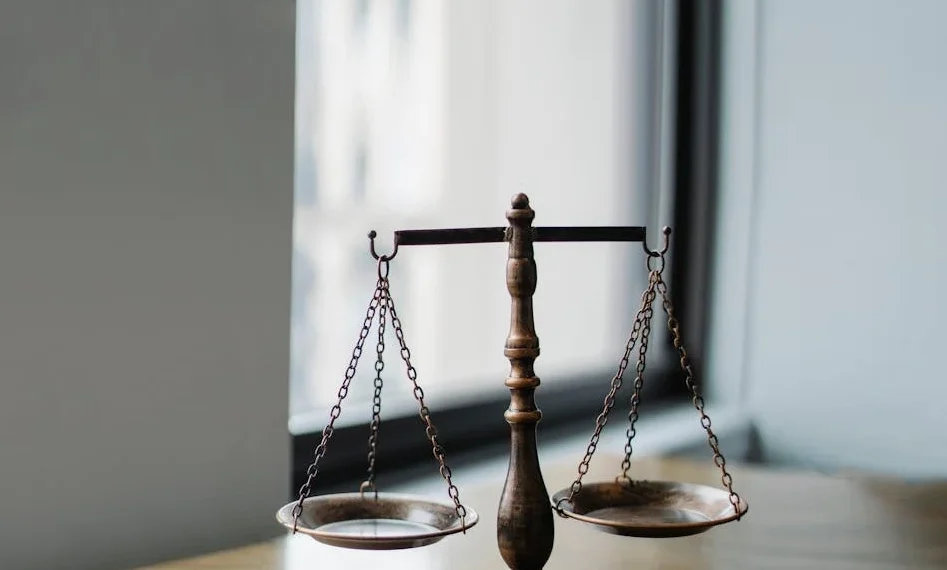
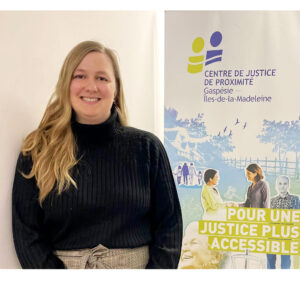 How does alimony work? What do you need to know when you’re the liquidator of an estate? What recourse do we have when our luggage goes missing after a flight? We all have questions at one time or another about our legal rights and duties. And it’s not always easy to make sense of it all. Fortunately, the Gaspé Peninsula – Magdalen Islands Community Justice Center (GPMICJC) is there to help us make sense of it all. How? We met its General Manager, Maude Lapointe, to find out.
How does alimony work? What do you need to know when you’re the liquidator of an estate? What recourse do we have when our luggage goes missing after a flight? We all have questions at one time or another about our legal rights and duties. And it’s not always easy to make sense of it all. Fortunately, the Gaspé Peninsula – Magdalen Islands Community Justice Center (GPMICJC) is there to help us make sense of it all. How? We met its General Manager, Maude Lapointe, to find out.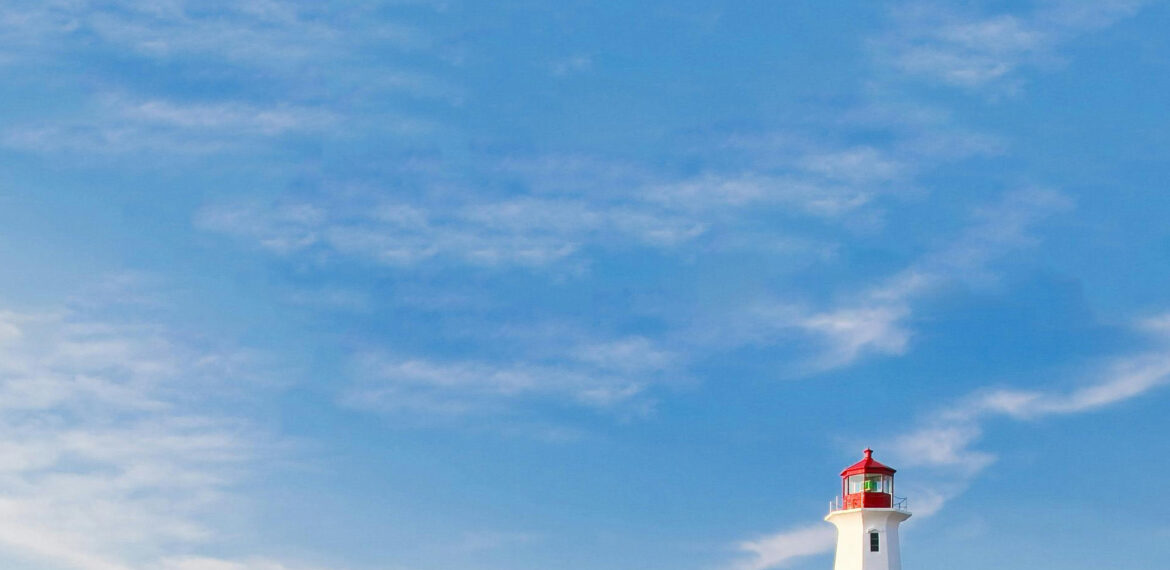
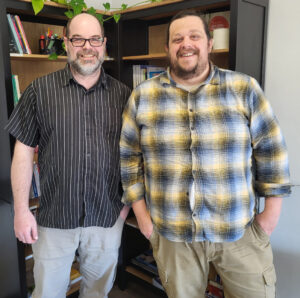 Are you familiar with Hommes & Gars? This community organization has been firmly rooted in the Magdalen Islands since 2013 and is committed to men’s health and well-being on a number of fronts. It’s safe to say: it’s clearly an agent of positive change in the community. How does the organization help men? We talked to Serge Richard, Coordinator, and Pierre-Luc Richard, Awareness and Communications Officer, at Hommes & Gars.
Are you familiar with Hommes & Gars? This community organization has been firmly rooted in the Magdalen Islands since 2013 and is committed to men’s health and well-being on a number of fronts. It’s safe to say: it’s clearly an agent of positive change in the community. How does the organization help men? We talked to Serge Richard, Coordinator, and Pierre-Luc Richard, Awareness and Communications Officer, at Hommes & Gars.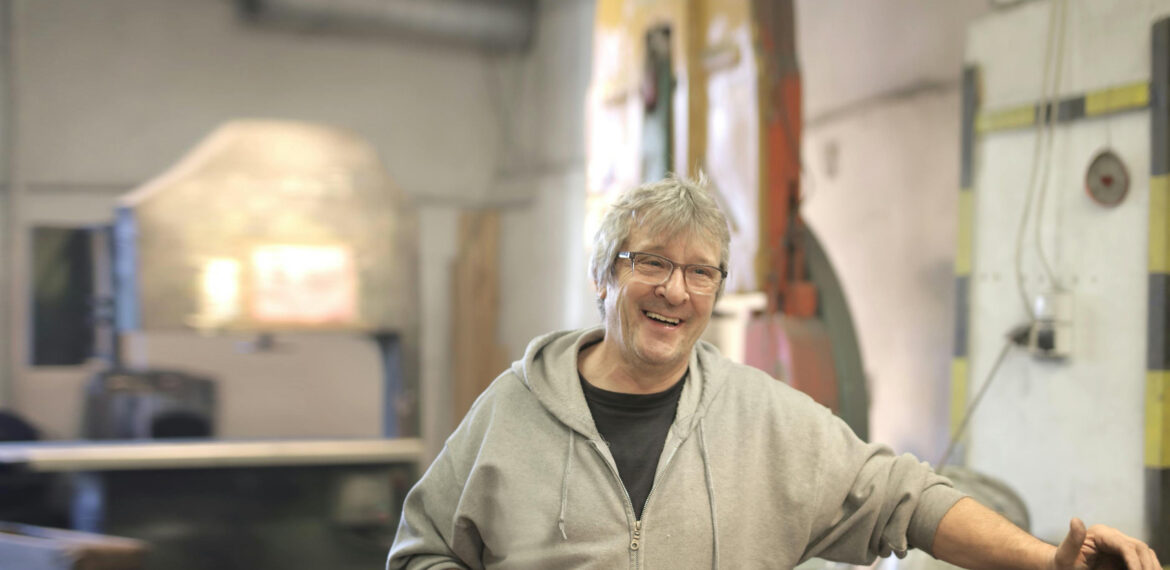
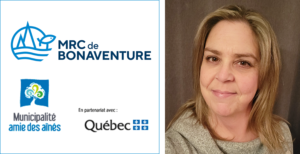 Did you know that in Gaspésie and the Îles-de-la-Madeleine, around 30% of the population is aged 65 or over? To encourage active aging among seniors, the Bonaventure RCM, like other RCMs and municipalities in the region, has chosen to become a Senior-Friendly Municipality (MADA). What does this entail? What can be done to promote the health and well-being of people aged 65 and over? What advice can we apply? We spoke to Karen Audet, MADA development worker at the Bonaventure RCM and member of the Table de concertation sur les réalités masculines GÎM.
Did you know that in Gaspésie and the Îles-de-la-Madeleine, around 30% of the population is aged 65 or over? To encourage active aging among seniors, the Bonaventure RCM, like other RCMs and municipalities in the region, has chosen to become a Senior-Friendly Municipality (MADA). What does this entail? What can be done to promote the health and well-being of people aged 65 and over? What advice can we apply? We spoke to Karen Audet, MADA development worker at the Bonaventure RCM and member of the Table de concertation sur les réalités masculines GÎM.
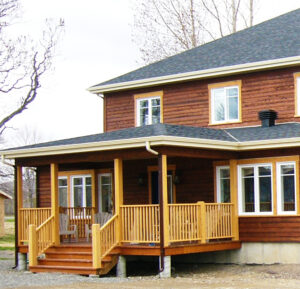 Some of us experience moments when everything goes sideways, when we are feeling helpless, in a state of crisis. And at such times, it is important to seek help, for example, in one of the region’s mental health shelters, like Centre Accalmie. “The understanding, the interest shown in me, the active listening: my stay was a great help. My counsellor was like a spark for me,” explains Louis, who found help from this organization when he was going through a depression episode. How does Centre Accalmie help people? We discussed this with Dominique Bouchard, General Manager of Centre Accalmie and President of the Regroupement des organismes communautaires et alternatifs en santé mentale de la Gaspésie-Îles-de-Madeleine (ROCASM-GÎM).
Some of us experience moments when everything goes sideways, when we are feeling helpless, in a state of crisis. And at such times, it is important to seek help, for example, in one of the region’s mental health shelters, like Centre Accalmie. “The understanding, the interest shown in me, the active listening: my stay was a great help. My counsellor was like a spark for me,” explains Louis, who found help from this organization when he was going through a depression episode. How does Centre Accalmie help people? We discussed this with Dominique Bouchard, General Manager of Centre Accalmie and President of the Regroupement des organismes communautaires et alternatifs en santé mentale de la Gaspésie-Îles-de-Madeleine (ROCASM-GÎM).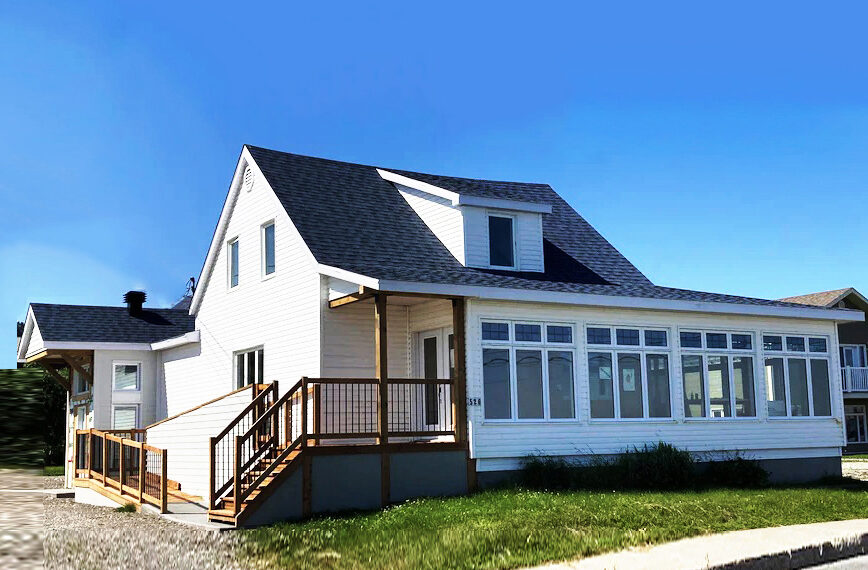
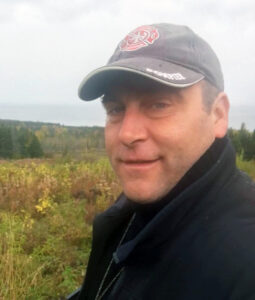 A father who stands with arms wide open before his son taking his first steps. An attentive father preparing breakfast for his daughter. “It’s little everyday gestures like these that show us the beauty of our work,” explained Mathieu Michaud, Maison Oxygène Haute-Gaspésie Coordinator. Have you ever heard of Maison Oxygène? It opened in 2021 and is based in Sainte-Anne-des-Monts, offering help to fathers in difficulty. What kind of services does it offer? How does it help dads? And what advice can be given to fathers who want to create more of a bond with their child? We caught up with Mathieu to find out.
A father who stands with arms wide open before his son taking his first steps. An attentive father preparing breakfast for his daughter. “It’s little everyday gestures like these that show us the beauty of our work,” explained Mathieu Michaud, Maison Oxygène Haute-Gaspésie Coordinator. Have you ever heard of Maison Oxygène? It opened in 2021 and is based in Sainte-Anne-des-Monts, offering help to fathers in difficulty. What kind of services does it offer? How does it help dads? And what advice can be given to fathers who want to create more of a bond with their child? We caught up with Mathieu to find out.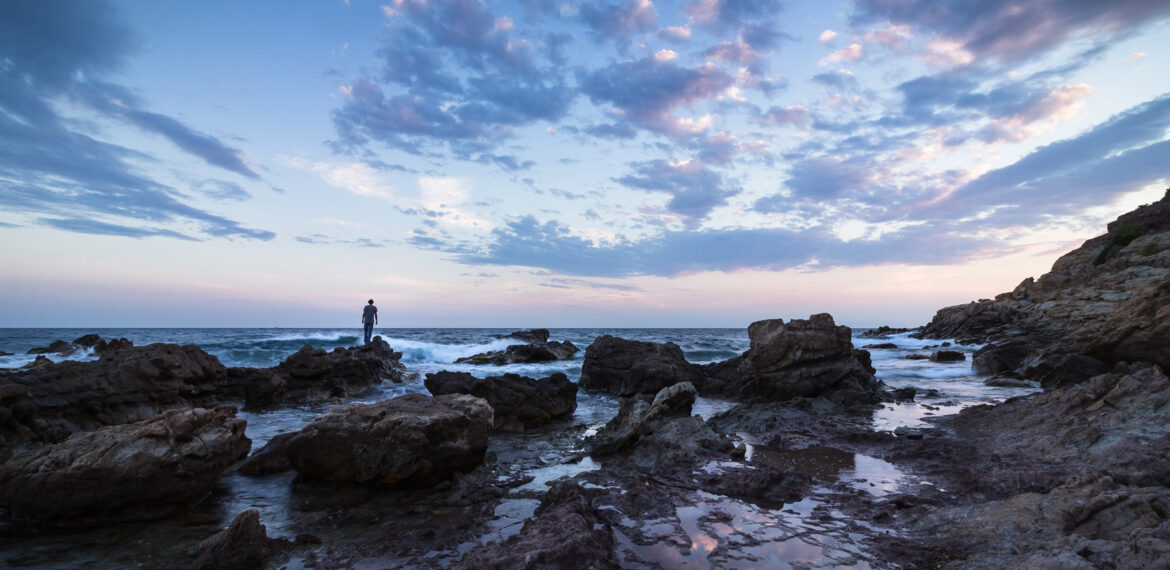
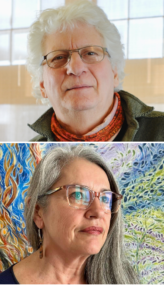 “Every time we help a man, we help his children and his partner. It’s positive for society as a whole,” stated Marie Hudon, Assistant Executive Director of Convergence – Service d’aide aux hommes de la Gaspésie, accompanied by Jean-Jacques Élie, the organization’s counselor and Executive Director. Since its foundation, Convergence has been committed to its mission of helping the male population of the Gaspé Peninsula. Men and teenagers aged 16 and over are welcome at this organization, where they are welcomed, their needs analyzed, and non-judgement is practiced. In 12 years, nearly 2,500 different men have found help from Convergence’s team of counsellors. What services do we offer? And what tips should we know to improve our relationships with our loved ones? We met Jean-Jacques and Marie to find out.
“Every time we help a man, we help his children and his partner. It’s positive for society as a whole,” stated Marie Hudon, Assistant Executive Director of Convergence – Service d’aide aux hommes de la Gaspésie, accompanied by Jean-Jacques Élie, the organization’s counselor and Executive Director. Since its foundation, Convergence has been committed to its mission of helping the male population of the Gaspé Peninsula. Men and teenagers aged 16 and over are welcome at this organization, where they are welcomed, their needs analyzed, and non-judgement is practiced. In 12 years, nearly 2,500 different men have found help from Convergence’s team of counsellors. What services do we offer? And what tips should we know to improve our relationships with our loved ones? We met Jean-Jacques and Marie to find out.